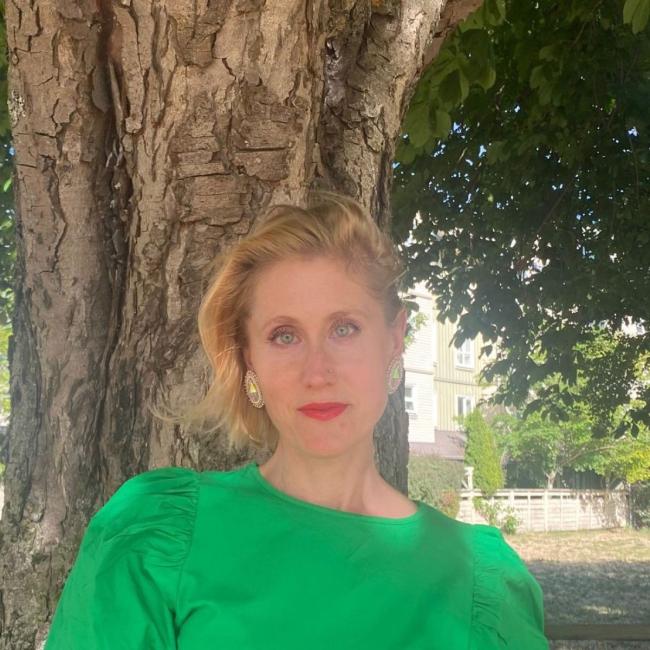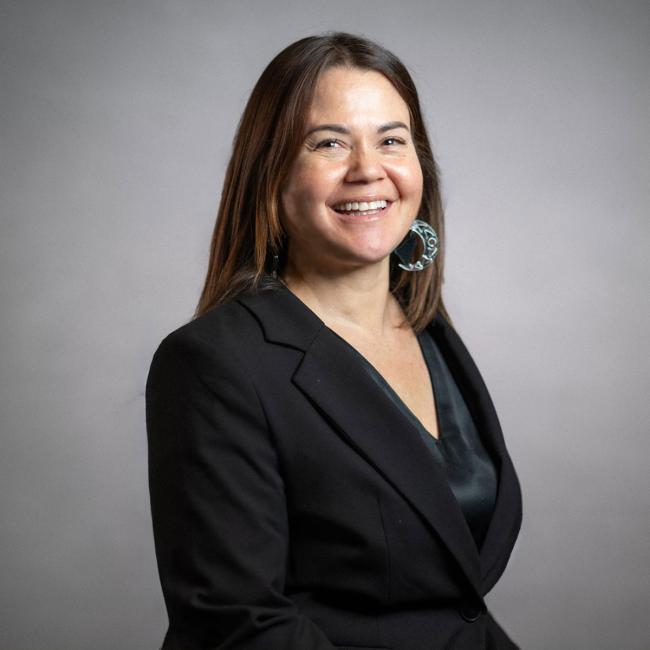Challenge the colonial foundations of education.
Explore what it means to decolonize yourself, your systems, and your relationships in learning environments. Learn how to take meaningful action in support of reconciliation and systemic change.
This is the only graduate-level program of its kind in Canadian higher education: designed not as a single course, but a full certificate that offers the opportunity for deeper engagement and guidance.
Online learning
Balance work, life and school.
Expert faculty
Indigenous and non-Indigenous instructors with experience in the field.
Flexible admission
We consider your work and life experience.
Upcoming offerings
January 11, 2027
Application deadline ℹ
Delivery model
Domestic tuition
International tuition
Related Schedules
January 10, 2028
Application deadline ℹ
Delivery model
Domestic tuition
International tuition
Related Schedules
Request more information
Help decolonize systems of learning
You’re an educator, leader, or learner who’s ready to take a hard look at the colonial structures embedded in education and your place within them.
You want to go beyond surface-level reconciliation and help shape more inclusive, relational, and decolonial systems of learning.
The Graduate Certificate in Decolonizing Education Systems supports anyone working in K-12, higher education, and professional learning settings to move from understanding to action.
Through this online program, you'll explore how colonialism shows up in education systems and how you can disrupt and transform those systems through critical reflection, relational practices and community-embedded approaches.
Delivered entirely online
All courses are delivered online and designed for working professionals. You’ll engage through readings, discussions, reflective assignments and experiential learning activities.
Courses are taken one at a time, in sequence, with each course lasting approximately 10 weeks. Expect to spend about 10–20 hours per week on coursework.
You’ll begin your program with a required non-credit course on academic integrity.
Courses
Faculty

Associate professor
Transfer agreements
Refine results
Admission requirements
Standard Admission
- Four year (or comparable) undergraduate degree
- Minimum of three years of professional or volunteer experience associated with education/learning systems. This can include paid or unpaid roles within any type of education or learning system, which could include: K-12 education, postsecondary education (college, polytechnic, university, etc.), a learning and development group embedded in a larger organization (corporation, non-profit, or public sector), or any other organization where learning is a key aspect of the organizational mandate.
- Ideal candidates are self-directed and highly motivated and possess strong interpersonal, research, and communication skills.
Flexible Admission
- Applicants with no or some undergraduate education and significant relevant work experience may be eligible for flexible admission. All applications are assessed on a case-by-case basis.
- As a general guideline:
- Applicants without an undergraduate degree, but more than three years (90 credits) of post-secondary education, should have at least four years of relevant, full-time work experience, or a combination of professional and volunteer experience.
- Applicants with two - three years (60-90 credits) of post-secondary education should have at least six years of relevant full-time work experience, or a combination of professional and volunteer experience.
- Applicants with less than two years (60 credits) of post-secondary education should have at least seven years of relevant full-time work experience, or a combination of professional and volunteer experience.
Application requirements
All applications to this program require submission of the following information and supporting documents before your file can be assessed for admission.
Application form
In order to apply online, you will be required to create a log-in account using your email address. You will be required to list all credit courses and/or programs you have completed or are currently enrolled in. An application fee will be required. If your application fees are being paid by a third party, review sponsored student information. Once submitted, you may check the status of your application at any time.
Missed your application deadline? While we can’t make any guarantees, we may be able to accommodate late applications if there's still space and enough time to process. If you're interested in an intake that is now closed to applications, apply for the next available intake and email Admissions with your preferred start date. Make sure you’re prepared to submit your program's required documents right away. We can't make an admissions decision without them.
Official transcripts
Applicants are responsible for arranging for the submission of official transcripts from ALL post-secondary (higher education) institutions currently or previously attended, for all credit courses and/or programs. Transcripts are not required for non-credit programs or courses, though some programs may require proof of professional certifications or designations.
Transcripts are considered official only if submitted directly by the Registrar or other recognized authority of the providing institution in the institution's original, sealed envelope. If the envelope has been opened, the transcripts are no longer official and new (official) transcripts will be required to complete your application.
All international transcripts or credentials are subject to an international transcript and/or credential evaluation.
Reference letters
Your application requires two letters of reference.
- Letters of reference can be provided by anyone who knows you and can speak to your interest in the Graduate Certificate in Decolonizing Education Systems.
- People who might provide references for your application include teachers (past or present), co-workers, people you volunteer with, members of your community, Elders, mentors, or even family members.
- Your referee should be able to explain why they think you would be well-suited to participate in the Graduate Certificate in Decolonizing Education Systems.
- Your referee should also explain how they have come to know you.
Structured résumé
Your structured résumé should include the following:
- Education: List all post secondary education, degrees, diplomas, and certificates you have achieved.
- Work experience: Please include name of organization, length of service (month & year), and a brief description of duties.
- Training and professional development: List career related training and professional development programs completed within the past five years. Include the source of training, and the duration and year completed. List other training and personal development programs not already identified.
- Voluntary/unpaid work experience: List and describe any voluntary/unpaid post-secondary employment and/or community service experience. Please include name of the organization, length of service and a brief description of your duties.
- Leadership/change agent/trainer experience: Briefly describe any specific training and/or experience you have had as a group/project leader, coordinator of change initiatives, or trainer.
- Professional memberships/affiliations: List memberships and positions you hold/have held in professional associations, service clubs, the community/volunteer sector.
- International experience: Indicate any work and/or volunteer experience you have had that you feel is relevant to this program.
Personal statement
Your personal statement is your opportunity to tell us why you are interested in the certificate program and how the program will help you meet your professional goals. Your personal statement should address each of the following questions.
- Briefly describe your work/volunteer experience as part of an education or learning system. These systems could include: K-12 education, postsecondary education (college, polytechnic, university, etc.), a learning and development group embedded in a larger organization (corporation, non-profit, or public sector), or any other organization where learning is a key aspect of the organizational mandate.
- What does “decolonization” mean to you?
- What interests you about decolonizing education and/or learning systems?
- How do you imagine this certificate might support the change work of your organization and/or community?
Your 750-850 word statement should be presented in a well written and concise manner using proper grammar and punctuation.
If applicable
- Applicants declaring permanent resident or Convention Refugee status in Canada, must submit a copy of their Permanent Resident Card (PR card) along with their application.
- Transcript evaluation fee or credential evaluation report, if submitting international transcripts.
- An official English language proficiency score report or other evidence of proficiency if English is not your primary language.
- Other information or documents as may be requested to determine your eligibility.
For information on how and where to send your supporting documents, please refer to the document submission guidelines.

